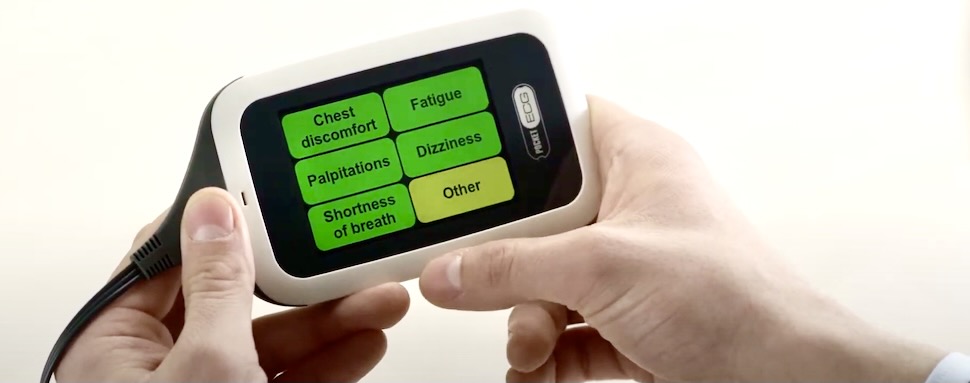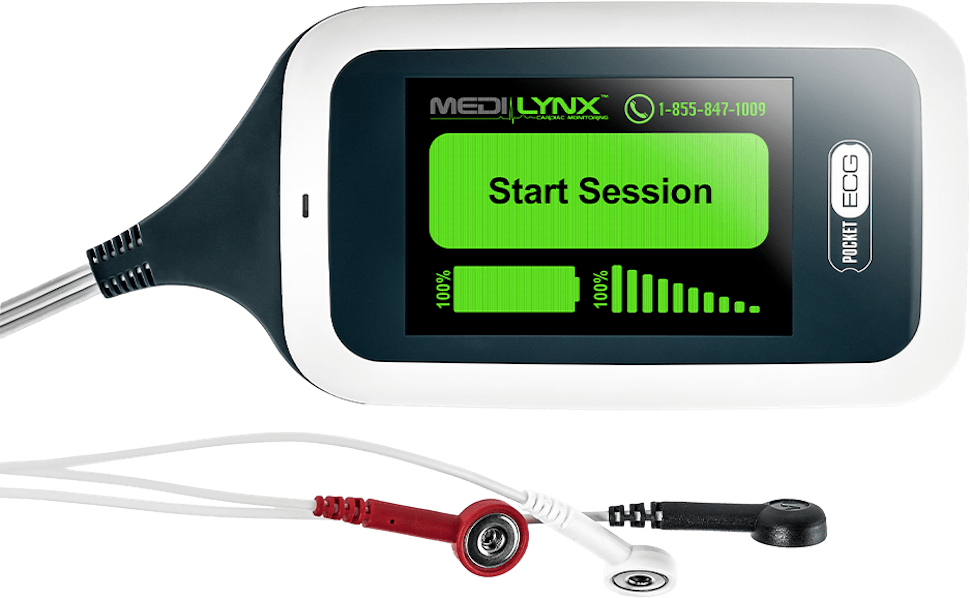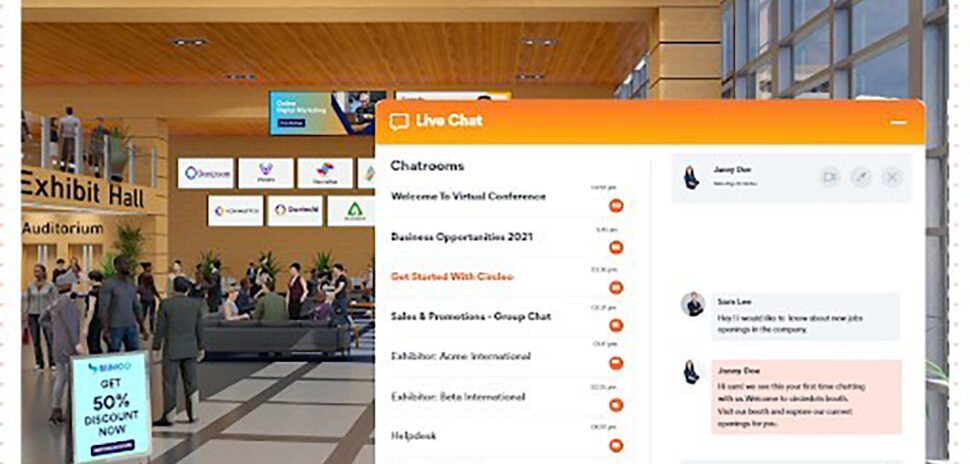A groundbreaking mobile cardiac monitor, developed by the parent company of Plano-based MediLynx Cardiac Monitoring, has received a broad patent to do what no other electrocardiogram (ECG) has ever been able to do: Monitor every heartbeat of a patient. Every single one—even if the patient is nowhere near a hospital or doctor’s office.
Until now, traditional mobile cardiac telemetry devices could upload only a portion of the ECG data taken during cardiac monitoring. But the PocketECG IV monitor, developed by Warsaw, Poland-based MEDICALgorithmics—of which MediLynx is the U.S. subsidiary—streams the entire, continuous ECG signal to a physician or monitoring center.
Thus, the patient’s heart is constantly monitored, even from a remote location, and any urgent issues that arise can be quickly identified. Additionally, this unprecedented method of recording enables online access to the entire ECG signal while the patient is being monitored.

Marek Dziubinski, Ph.D., founder of MEDICALgorithmics, parent company of MediLynx. [Photo: LinkedIn]
“Our innovation is the platform for the next generation of intelligent remote monitoring systems, where ECG interpretation accuracy and online capabilities are key,” said Marek Dziubinski, Ph.D., founder of MEDICALgorithmics and inventor of the technology, in a statement.
“The latest advancements in deep learning and artificial intelligence algorithms can be used to their full potential to process every heartbeat, pushing the boundary of automated ECG analysis accuracy and predictive capabilities,” he added.
Processed by ‘super-deep convolutional neural network’
The patented technology allows for streaming of every heartbeat to a cloud-based platform, where the continuous signal is processed “in near real-time by a super-deep convolutional neural network with over 100 layers.” The company says ECG streaming, combined with advanced cloud computing, is “ideally suited” to accurately detect transient cardiac arrhythmias, or to monitor post-operative patients after discharge from a hospital.

Patients can note their symptoms on the PocketECG IV monitor from MediLynx. [Image: MediLynx]
From arrhythmia diagnostics to post-op monitoring
Dziubinski says applications for the PocketECG IV and its cloud-based processing include transient arrhythmia diagnostics including atrial fibrillation; pre-hospitalization assessment of patients with intermittent and severe cardiac symptoms; and postoperative monitoring of discharged patients.
Work began on what was called “the ECG techbot” in 2017, and is described on the parent company’s website as “dedicated software or automatic interpretation of the ECG signal based on deep learning methods.”

Peter Pellerito, CEO and chairman at Plano-based MediLynx. [Photo: LinkedIn]
Plano-based MediLynx is tasked with rolling out the PocketECG in the U.S.
“MediLynx is excited to introduce this new technology to the market and partner with scientists and physicians to explore the potential of these new capabilities to improve patient’s care and arrhythmia diagnostics quality,” Medilynx CEO Peter Pellerito said in the statement.
Two diagnostic testing facilities in the U.S.
With its two offices in Plano and San Francisco, MediLynx has two independent diagnostic testing facilities in the U.S. doing business as MediLynx Arrhythmia Diagnostics. Its services are contracted nationally with most national insurance carriers.
Communication is vital when transmitting diagnostic data like arrhythmia monitoring to hospitals. MediLynx has recently implemented an Electronic Medical Records (EMR) software integration capability, which allows for its diagnostic data to be seamlessly exchanged with hospital EHR systems, according to the company.
![]()
Get on the list.
Dallas Innovates, every day.
Sign up to keep your eye on what’s new and next in Dallas-Fort Worth, every day.






























